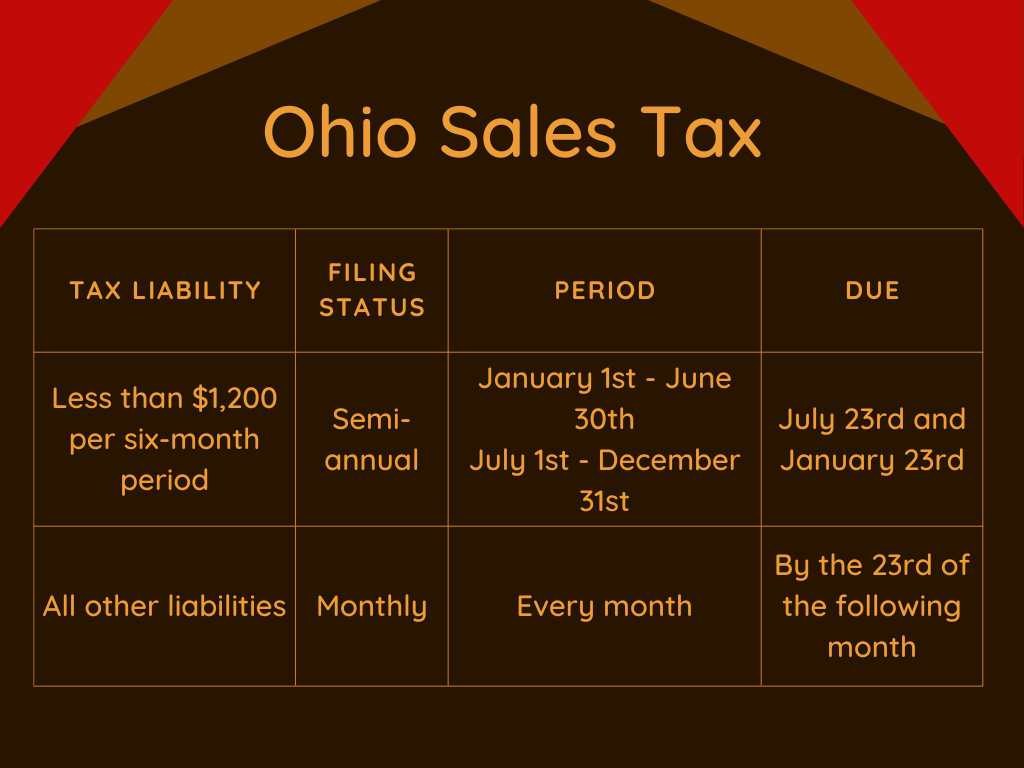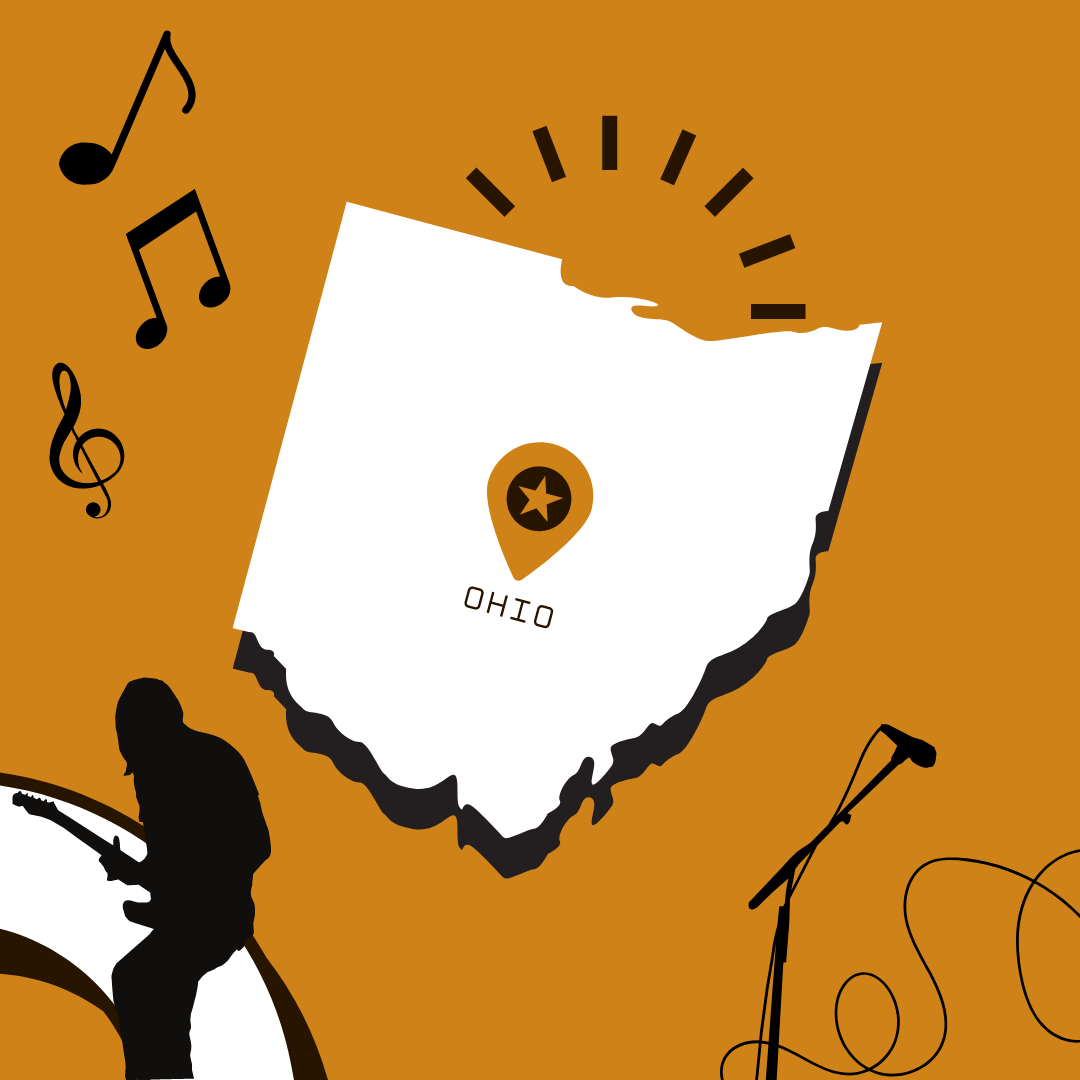Do you need to collect and remit sales tax in Ohio?
Ohio sales tax is a combination of state and local-level taxes which are applied to the sale of most goods and services. Businesses are generally responsible for collecting from customers and remitting to the state, such as those who have a store or office in Ohio as well as out-of-state sellers who exceed the economic nexus thresholds. Additionally, businesses that engage in activities like trade shows or other temporary events in Ohio may also be responsible for collecting sales tax.
There are some exemptions, however. Here are a few examples:
- Non-prepared food items (such as most groceries)
- Newspapers
- Sales by and to churches and nonprofit charitable organizations
- Sales to U.S. government agencies
- Prescription drugs
- Public transit
- Personal care services (such as skin care, massages, tattoos)
For a consumer to make tax-free purchases on otherwise taxable sales, they must supply a valid exemption certificate to the vendor.
Do you have sales tax nexus in Ohio?
Sales tax nexus refers to the connection a business has with a state that makes it responsible for collecting and remitting sales tax. It is crucial for businesses to understand nexus to ensure compliance with state tax laws.
Physical sales tax nexus in Ohio
Physical nexus is created when a business has a tangible presence in a state, such as an office, warehouse, or employees. Some examples of activities that create physical nexus in Ohio are:
- Maintaining a storefront
- Using a third-party warehouse for product storage
- Having employees in the state
Economic sales tax nexus in Ohio
Economic nexus is based on a business’s sales volume or transaction count within a state. As ecommerce continues to grow, economic nexus laws play a vital role in guaranteeing that sales tax is collected from a wider variety of businesses. This ensures a level playing field, where businesses with a physical presence are not at a disadvantage by having to collect sales tax while online or remote sellers remain exempt.
In Ohio, the economic nexus threshold is:
- Over $100,000 in Ohio sales
- 200 or more Ohio transactions
Both thresholds apply to the current or previous calendar year, and include all combined taxable sales sourced to Ohio, even those that are made through a marketplace facilitator.
Determining nexus for your business can be a complex and daunting task. With many factors to consider, businesses struggle to navigate the intricacies of nexus determination, and even end up paying thousands of dollars to accounting firms to get answers. That’s why we offer nexus determination as an a-la-carte or package deal for businesses at affordable prices. With over 20 years of experience in federal and state tax and accounting laws, we’re a trusted partner for many businesses in need of nexus review services. Contact us now for a consultation!
Are marketplace facilitators required to collect and remit sales tax in Ohio?
In Ohio, marketplace facilitators are required to collect and remit sales tax on behalf of their sellers if they exceed the economic nexus threshold of $100,000 in annual sales or 200 transactions within the state.
However, while marketplace facilitators have responsibility over sales tax, sellers must still include their marketplace sales when finding if they meet the economic nexus thresholds. If a seller has reached the threshold when combining their marketplace and other sales, they are obligated to collect and remit sales tax on any non-marketplace sales.
What platforms are marketplace facilitators?
What is a marketplace facilitator?
A marketplace facilitator, sometimes referred to as a Multivendor Marketplace Platform (MMP), is an online platform that allows customers to purchase goods or services from various vendors in one convenient location. These platforms can benefit businesses by increasing product visibility and attracting a larger customer base. Additionally, marketplace facilitators often have the legal responsibility to collect and remit sales tax on behalf of sellers, which can help ease the sales tax burden for businesses.
Filing Ohio Sales Tax
If you have nexus in Ohio, you will need to register with the Ohio Department of taxation before collecting sales tax. We’ve outlined the different ways businesses can register in the table below.
| Business Type/Nexus | Registration Method | Resources |
| Business with Physical Nexus | Retailers in Ohio may obtain a vendor’s license through the Ohio Business Gateway after creating an online account. | Ohio Business Gateway Account Creation |
| Business with Physical Nexus | Businesses in Ohio may also apply for a vendor’s license with their county auditor. | List of Ohio County Auditors |
| Out-of-state seller/Marketplace facilitator | Out-of-state sellers and marketplace facilitators can create an account on the Ohio Business Gateway and request a seller’s use tax license. | Ohio Business Gateway Account Creation |
| Out-of-state seller | Ohio is a member of the Streamlined Sales Tax Registration System, which is an online system where out-of-state sellers can register for multiple states by submitting one application. | Streamlined Sales Tax |
After your registration is complete and you have obtained a license with Ohio, you will be assigned a filing frequency that will indicate how often you need to collect and remit sales tax.
Ohio requires that all sales and use taxpayers file electronically, so you will need to have an Ohio Business Gateway account. There are other convenient services on the electronic filing system such as filing amended returns or making changes to your business information or license.
Note: Taxpayers must keep records of all Ohio sales for at least four years in the case of an audit.
Let us file for you!
If you’re looking for help with a myriad of sales tax obligations, that’s why we’re here! We are a one-stop-shop for comprehensive sales tax services! Our range of services includes nexus determination, business registration, compliance reviews, audit assistance, and—of course—filing sales and use tax returns. If you don’t see what you need, just let us know and we’ll create a customized solution just for you. Visit our services page to learn more!
When are sales tax returns due in Ohio?
When a business registers with Ohio, it is assigned a sales tax filing frequency that indicates how often the business must file its sales tax returns. This frequency depends on the seller’s average tax liability. The graphic below provides a clear breakdown of these filing frequencies, their corresponding due dates, and their associate tax liability levels.





